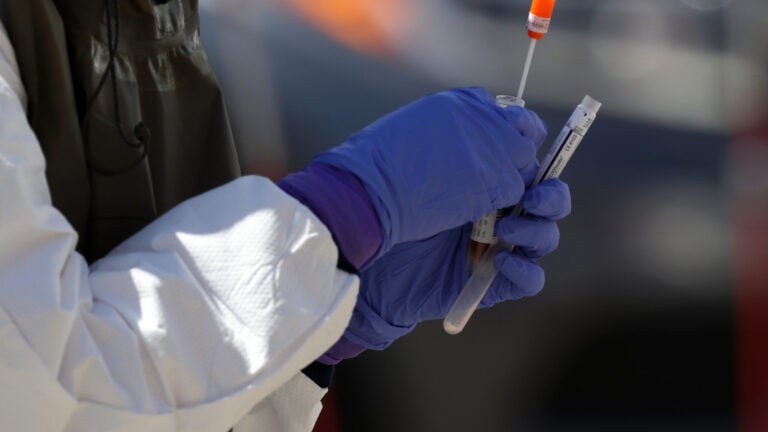Study finds hundreds of thousands more Mass. residents likely contracted COVID-19 than reported
“We find no evidence that any state is approaching herd immunity or that its epidemic is close to over."

Hundreds of thousands more Massachusetts residents were likely infected with the coronavirus than the state’s official count of confirmed cases, according to a new study.
Researchers at the Imperial College London modeled the COVID-19 pandemic at the state level using publicly available data and found that for Massachusetts, 13 percent of the population likely contracted the virus — or about 896,000 people.
As of Monday, the state had reported 93,271 confirmed coronavirus cases.
According to the researchers, only New York, New Jersey, and Connecticut had higher percentages of their populations infected with the virus than Massachusetts.
“We find no evidence that any state is approaching herd immunity or that its epidemic is close to over,” researchers wrote.
Herd immunity means the majority of the population has already been infected with an infectious disease or received immunity through a vaccine, providing indirect protection against the illness since most people would not fall ill if they encountered someone ill with the infection — and therefore wouldn’t spread it any further. Johns Hopkins researchers estimate that to achieve herd immunity against COVID-19, 70 percent of the population would have to contract the virus.
The Imperial College London study found that COVID-19 is not under control in most of the United States, and researchers warned that “caution must be taken in loosening current restrictions if additional measures are not put in place.”
“We predict that increased mobility following relaxation of social distancing will lead to resurgence of transmission, keeping all else constant,” the researchers wrote. “We predict that deaths over the next two-month period could exceed current cumulative deaths by greater than two-fold, if the relationship between mobility and transmission remains unchanged. Our results suggest that factors modulating transmission such as rapid testing, contact tracing and behavioural precautions are crucial to offset the rise of transmission associated with loosening of social distancing.”
Seth Flaxman, a senior lecturer at Imperial College London, told The Boston Globe that Massachusetts could see its daily number of deaths increase in the next two to three weeks if the rate of infection increases with residents pushing too quickly to return to pre-pandemic lifestyles.
Gov. Charlie Baker announced last week the state was starting the first of four phases to reopen the local economy, allowing certain sectors to resume business with restrictions and relaxing the state’s “Stay at Home” advisory to a “Safer at Home” advisory.
“In Massachusetts, you are on a knife’s edge,” Flaxman told the Globe.
Boston Medical Center infectious disease specialist Dr. David Hamer told WBUR of the study that he agrees the state’s confirmed number of cases is likely inaccurate.
“Many people were told if you weren’t very sick, ‘Stay at home and just recover,’ and I think that between that population and those that had asymptomatic infections, the total of cases in the state has been much higher than we have counted,” he told the station.
The Boston doctor said he believes it is likely the actual case count in Massachusetts may fall somewhere between the state’s confirmed number and the Imperial College London projection. The only way to get a firmer grasp on the number of people who have contracted the illness would be to conduct large, population-based serological testing.
The Boston Public Health Commission and Massachusetts General Hospital conducted a small study to evaluate community exposure and found that 10 percent of residents tested in the sampling had antibodies for the coronavirus, indicating they’d contracted the illness and fought it off.
Samir Bhatt, a senior lecturer at Imperial College London, told the Globe the study’s estimates are “pessimistic” and they modeled what could happen assuming “the relationship between mobility and disease transmission remains constant.”
“We do not address the potential effect of additional behavioural changes or interventions, such as increased mask-wearing or testing and tracing strategies,” Bhatt told the newspaper. “These scenarios are pessimistic and should be interpreted as such.”